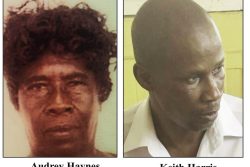Last September, an analysis of Covid-19 antibodies from blood-bank samples in Manaus indicated that as much as 66 percent of the city had been infected. When the study was published a few weeks later, in Science, that estimate had risen to 75 percent. The findings suggested that the city’s two million inhabitants might have achieved ‘herd immunity’, and with it a robust defence against further infection. That hope proved illusory. In May 2020, as the first wave peaked, the city was recording 80 Covid-related deaths per day. By year-end, as the P-1 Covid mutation ravaged the city, that rose to 100. By February 2021 it had reached 140.
With more than 250,000 deaths, Brazil trails only the US in the number of Covid-19 fatalities. In December an AFP report estimated that more than half of Latin America and the Caribbean’s 508,000 recorded deaths had occurred within Brazil. The plight of Manaus vividly illustrates the larger failures of the Bolsonaro government in dealing with the crisis, and the neglect which has allowed the virus to spread and mutate long after it could have been contained.
In the first week and a half of 2021 Manaus hospitalised 1,979 people with Covid. (In all of April 2020, the city’s worst previous month, the figure was 2,128.) That surge overwhelmed the health system, creating an acute shortage of basic supplies — some family members spent 12 hours waiting for oxygen tanks to be refilled. Soon the crisis required emergency airlifts for patients to receive treatment in other parts of the country. When pressed on his government’s failures to respond to this foreseeable crisis, President Bolsonaro told his critics to stop “fussing and whining” and “face the problems.”
Bolsonaro’s heartlessness is entirely consistent with his denialism and inaction. When, for instance, the mayor of Manaus called for a lockdown last September — to contain further spread of the virus — Bolsonaro said the idea was “absurd” and emphasized that the time for lockdowns was “over”. When experts warned that a devastating second wave was heading for Amazonia, unless immediate pre-emptive measures were taken, their predictions were ignored. Instead, Bolsonaro’s government seems to have quietly pursued the very ‘herd immunity’ that has failed to protect Manaus. This gamble has cost tens of thousands of lives.
In a scathing analysis of Brazil’s pandemic policies, researchers at the University of Sao Paulo blame the Bolsonaro administration for blocking mask mandates, cancelling compensation payments to health workers, and wilfully neglecting vulnerable Indigenous communities. State and municipal authorities are also criticised for peddling discredited remedies and attempting to seize supplies and equipment from other towns and cities.
Damningly, the report cites Bolsonaro’s repeated misinformation as a critical factor in the government’s larger failures. The president not only called the pandemic an act of “bacteriological war”, but claimed he was “living proof” that hydroxychloroquine worked. At a moment when he should have been encouraging vaccination, he joked that: “If you turn into a crocodile, it’s your problem.” Collectively these failures may amount to a crime, as several lawmakers have claimed, in an ongoing effort to hold both president and his Minister of Health accountable before an international tribunal.
In the meantime, Manaus’s Nossa Senhora Aparecida cemetery has been hastily expanded to accommodate the human toll of Bolsonaro’s folly. With more than 3,000 burials in January, and an uncertain future as it struggles to contain the latest surge, the horrors in Manaus show that even with vaccines, a quick recovery from the Covid-19 pandemic is far from assured.







